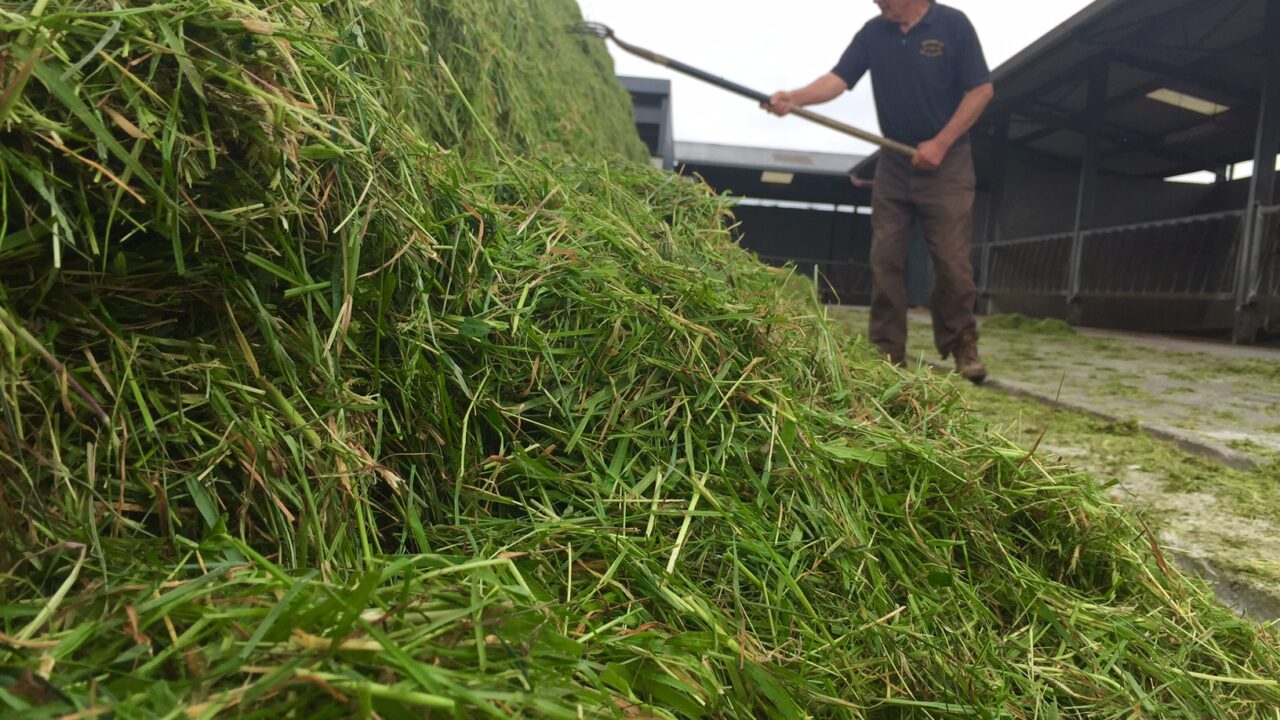Decisions taken now and over the next six weeks will have a major effect on silage quality next winter, according to AFBI, the North’s Agri-Food and Biosciences Institute.
AFBI research has shown that good silage quality is critical to achieve good animal performance.
Each unit increase in silage dry matter digestibility (DMD) increases milk yield by 0.3-0.4L/day, according to the research.
It is advising farmers that a delay in harvesting of one week from mid-May onwards typically results in a reduction in DMD of up to three units.
As a consequence of this, it says that each one week delay in harvesting after mid-May typically results in a reduction in milk yield of 1.0 -1.2L/day.
The key message from AFBI is to plan now to ensure grass is harvested at the right stage to maximise the potential of your silage next winter.
Grass development and silage quality
The onset of seed heading in grass in spring is determined by increasing day length, according to AFBI and each variety reaches a “critical” day length after which it starts to grow reproductively.
Grass variety trials at AFBI Crossnacreevy show that the critical day length for most ryegrass varieties occurs in March/April, with temperature having a major effect on grass yield and quality thereafter.
So to target high-quality grass of 70 -73D and above, AFBI says that this means cutting well before any seed heads appear, normally in early to mid-May.
In a cool season, such as this year, when leaf bulk has not been built early in the season, delaying harvest too long for a good yield only produces more stem of lower quality and reduces yield of second cut, according to the body.
With intermediate and late variety mixtures, it advises that heading can spread over two weeks with some varieties naturally holding higher quality levels longer, even through to the end of May.
Silage quality and livestock performance
Furthermore, research at AFBI, Hillsborough, has shown that the quality of grass at harvest is the key factor which determines the capacity of cattle and sheep to maximise nutrient intake from silage.
Good quality silage is characterised by high digestibility and metabolisable energy contents, which AFBI says means that more of the nutrients are captured for milk production and growth, with less wasted in manure and gaseous losses.
It advises that this is particularly important for autumn and winter calving dairy cows where concentrate supplementation can substantially add to production costs.
